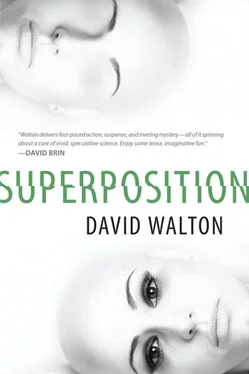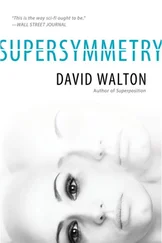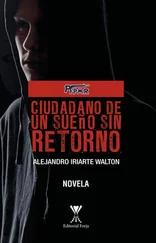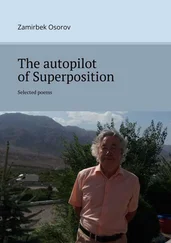“Yes.”
“So, approximately eight hours after Mr. Vanderhall ran away from the Kelley residence, and five hours after the police finished questioning the family?”
“Objection,” Terry said. “Asked and answered.”
“Sustained, Mr. Haviland. Let’s move along.” Judge Roswell said.
“Yes, Your Honor.” Haviland flipped to another page in his notes. “Was any suicide note found on the premises?” he asked.
“No sir, there was not,” Lin said.
“Were Mr. Vanderhall’s injuries consistent with a theory of suicide?”
“No sir. Suicide was not a serious consideration.”
“Why not?”
Lin smiled condescendingly. “Mr. Vanderhall was shot in the middle of the chest from a distance of at least three feet. The insubstantial amount of gunshot residue found on his skin and clothing rules out the possibility that he was any nearer to the gun when it was fired. Besides which, he was then shot two more times while he was lying on the floor.”
“He was shot a total of three times? Was one shot not enough to kill him?”
“No sir, it would have been enough. The first shot passed through Mr. Vanderhall’s heart, almost certainly killing him before either of the other two shots was fired.”
“In your expert opinion, what do those extra shots suggest?”
“It’s what we call overkill. One shot might indicate an accident or a thoughtless action taken in a moment of passion. Multiple, unnecessary shots suggest that the murder was intentional. They suggest that the first shot, while sufficient to cause death, was not sufficient to complete the emotional experience. It means that this killer wanted to be very, very certain that Mr. Vanderhall was dead.”
UP-SPIN
Marek Svoboda was my brother-in-law, married to Elena’s sister Ava. He was Romanian, a carpenter by trade, and a genius with crown molding. He had immigrated to the States ten years earlier, when the Russo-Turkish war over the Balkans in the twenties had devastated his country’s economy. The retirement of the Baby Boomer generation had caused a serious shortage of working-age people in the United States, and Marek had taken advantage of the immigration incentives the United States was offering at the time. For years, he worked in construction, sending most of his paycheck back to his family in Romania, until he discovered that his wife had married another man and kept it a secret so Marek would keep sending her money. Now he was married to Ava, and he didn’t send his salary anywhere if he could help it.
He was nearly as big as I was and more densely muscled. He’d helped me with a lot of carpentry work at our house over the years and had come to be a good friend.
“How far away is it?” he asked. I was driving; he was picking the music. At the moment it was some kind of Latin/Slavic fusion rock that sounded like a family of cats caught on a firing range.
“Not far now,” I said. It had been nothing but pine forest on either side of us for miles. The New Jersey Pine Barrens covered over a million acres, and every acre of it looked pretty much the same. For large portions of it, there wasn’t even any cellular phone coverage. It was considered an International Biosphere Reserve by the United Nations and protected from most development. Despite this, we were actually driving over the particle accelerator, which ran underneath the trees, a huge ring buried two hundred feet beneath the surface and stretching thirty miles in circumference.
I had spent most of the trip trying to explain to Marek how it worked. “It’s like a big racetrack,” I said. “We use thousands of magnets to get little particles zipping around at the speed of light and then, bang! They smash into each other.”
“Little?” Marek held up his thumb and forefinger with only a small space between them. “Like this big?”
“Um…” I grinned. “Actually, you could line up a few million subatomic particles between your fingers right now.”
Marek took being off by six orders of magnitude in stride. “And you shoot them as fast as light?”
“Well, it’s more like 0.999999 times the speed of light, but close enough.”
“So, millions of dollars, to smash little bits together,” Marek said.
“Actually, it’s more than ten billion dollars. But yeah, pretty much.”
Marek’s eyebrows knitted together as if in pain. “And the point is?”
Marek had a thing about money. He complained about every dollar of taxes he had to pay and raged about government waste, seeing his own salary being spent on things he didn’t care about. He always thought products were overpriced, though math wasn’t his strong suit. He would drive ten minutes out of his way to save two cents on a gallon of gas.
“It’s trying to answer some of the deepest questions we have about the universe,” I said. “Questions like, ‘Where does mass comes from?’ and ‘Why can’t we see most of the matter in the world?’ and ‘What happened during the first few fractions of a second of the beginning of the universe?’”
The endless trees finally gave way to housing developments and strip malls. A sign with a picture of the Hindenburg said, “Welcome to Lakehurst, Airship Capital of the World.” In the distance, a jet took off from McGuire Air Force base.
Marek frowned. “You are trying to find God?”
I shook my head, ready to correct him, but Marek’s family had been Orthodox for centuries, their faith surviving even through the Communist regime. As far as I knew, Marek himself never went to church, but religion was a fundamental part of his ethnic and family identity. “Something like that,” I said instead.
The buildings of the NJSC loomed ahead of us, twelve of them in all, dominated by the silver-domed Feynman Center. I had called ahead and arranged with Jean Massey, a friend from the days when I’d worked there, to get us in. We entered through the employee gate, and security waved me through when I showed my ID. I turned left beyond the Einstein Building onto Strange Street, and parked in front of the Dirac Building, where I had worked with Brian before I left. I turned off the car but made no move to get out.
“Are you okay?” Marek asked.
“Fine,” I said. “Just some people in there I haven’t seen for a while.”
We got out of the car. The doors all required card readers to get in, but I called Jean and she buzzed us through.
The girl at the front desk said, “Hey, are you guys from the police?”
“Not hardly,” said Jean, coming around the corner. She handed each of us a visitor’s badge.
“Jeannie,” I said. “Good to see you.”
We shook hands, and she gave me a quick peck on the cheek. Jean Massey was about thirty-five, thin as a rake, with big glasses and flyaway brown hair that already showed streaks of gray. She was about the most brilliant person I remembered working with in my old career, though she was so unassuming you could miss her at a party. We walked through the building toward Brian’s office, things looking pretty much as I remembered them.
“How are you?” I asked. “How’s Nick?” Shortly before I had left the NJSC, Jean had married a young genetics professor from Princeton. The office staff had oohed and aahed over her wedding dress and all the plans, and everyone seemed to think it was a match made in heaven. I was a bit afraid to ask, given how quickly marriages sometimes fell apart, but Jean just smiled.
“Doing fine,” she said.
“And did I hear you had a baby?”
“Yeah, that’s right.”
“I’m sorry, I forget. Girl or a boy?”
“A girl. Chance.”
“Chance?”
She answered wearily, as if tired of explaining. “That’s her name.”
Читать дальше












